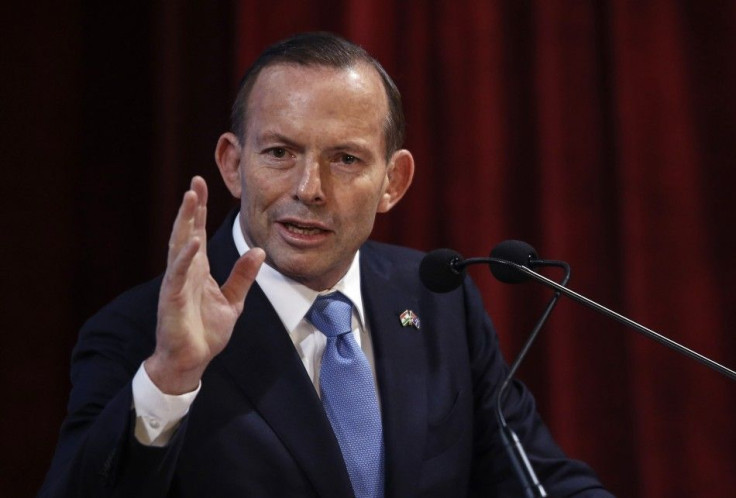Poll Confirms Unpopularity Of PM Tony Abbott As 51% Think He Won’t Win 2016 Election

Australian Prime Minister Tony Abbott continues to lose public support. A few days ago, Opposition leader Bill Shorten was considered by respondents in a survey as preferred PM.
On Tuesday, another poll pointed to Mr Abbott's further decline in popularity as 51 percent of people surveyed believe that he would not win as PM in the 2016 election. This contrasts 14 months ago when the Coalition won majority of the seats in the Australian Parliament and allowed Mr Abbott to fulfill his dream of leading the nation.
However, about 29 percent thought he would still win, while among Liberal and National voters, an even lower 50 percent foresaw electoral victory for Mr Abbott, but 29 percent had the opposite opinion.
A lower 46 percent predicts an Opposition win, while 27 percent foresees the Coalition still keeping the prime ministership.
The survey was conducted by Essential, which reports a 1 percent reduction in Labor's lead in a two-party scenario to 52-48.
Political observers point of failure by the Abbott government to fulfill its campaign promises as the reason behind its sagging voter support. Another one is the drastic cuts in the federal budget that would see the cutting of a number of programmes and axing of 175 government agencies, resulting in thousands of public servants becoming unemployed.
YouTube/Studio 10
The negative impact of these measures resulted in adjustments to the federal budget that Treasurer Joe Hockey announced on Tuesday. The Organisation for Economic Cooperation and Development (OECD), in its yearly review of the Australian economy, agreed with the Aussie sentiment against the budget cuts reflected in the poll results.
The OECD said the Abbott government is right in no longer pursuing more budget cuts to achieve a surplus due to the declining government revenue. However, it recommended hiking the GST and cutting superannuation tax concessions to reduce the budget gap.





















